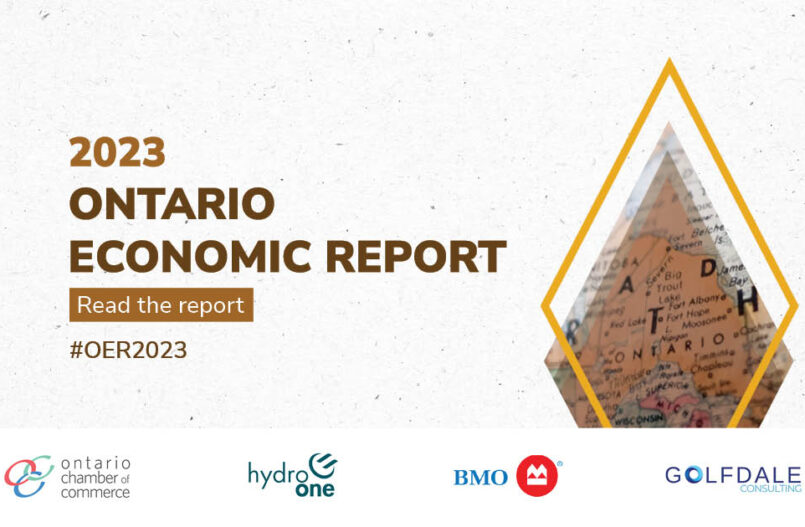Despite low confidence in the economy, most businesses are optimistic about the outlook of their own organizations
Business confidence has dropped to a new low according to the Ontario Chamber of Commerce’s (OCC) seventh annual Ontario Economic Report (OER).
“Ontario business confidence has dropped to a record low in 2023. Labour shortages, inflation, health care system vulnerabilities, and forecasts of an economic contraction are dampening confidence in the province’s economic outlook,” said Rocco Rossi, President and CEO, OCC. “Only 16 percent of organizations surveyed have confidence in the economy. This is down 29 percent from last year. Promisingly, most businesses feel confident they can withstand these headwinds and continue to grow in the year ahead.”
The 2023 OER contains regional and sector-specific data on business confidence, public policy priorities, regional forecasts, and timely business issues such as employee health and well-being, climate change, succession planning, diversity and inclusion, reconciliation, and remote work.
“This year’s OER makes it clear that leaders in the public and private sectors must invest strategically in productivity, resilience, and long-term growth,” said Claudia Dessanti, Senior Manager, Policy, OCC. “Unsurprisingly, labour shortages continue to dominate as a source of concern directly impacting most employers and 87 percent of large businesses. Shortages are especially acute in specific sectors such as education, construction, and accommodation and food services.”
Key highlights of the report include:
- Business confidence has dropped to a new low, with only 16 percent of organizations expressing confidence in the outlook of Ontario’s economy in 2023 (down from 29 percent in 2022).
- Inflation and labour shortages are primary concerns for organizations.
- Despite low confidence in the economy, 53 percent of businesses are optimistic about the outlook and growth prospects of their own organizations, as high employment rates and population growth should prevent a sharp decline in consumer spending.
- Small businesses want governments to prioritize policies and programs that support their immediate financial and operational challenges, while large businesses are more interested in broader workforce development and health care issues.
- Labour shortages are directly impacting most employers and 87 percent of large businesses. Shortages are especially acute in education, construction, and accommodation and food services.
- Businesses appreciate the importance of employee health and well-being, diversity and inclusion, economic reconciliation, and climate action – but there are notable gaps in addressing them.
The seventh annual OER offers unique insights into business perspectives across Ontario. It is informed by data from our annual Business Confidence Survey (BCS) and economic forecasts for the year ahead. The BCS was conducted online from October 18 to November 30 2022, attracting responses from 1,912 organizations across Ontario.
The OER was made possible by OCC’s Landmark Partner, Hydro One, and Research Partners, Golfdale Consulting and Bank of Montreal. Read the report.
-30-
About the Ontario Chamber of Commerce
For more than a century, the Ontario Chamber of Commerce (OCC) has been the independent, non-partisan, indispensable partner of Ontario business. The OCC’s mission is to support economic growth in Ontario by defending business priorities at Queen’s Park on behalf of its network’s diverse 60,000 members.

